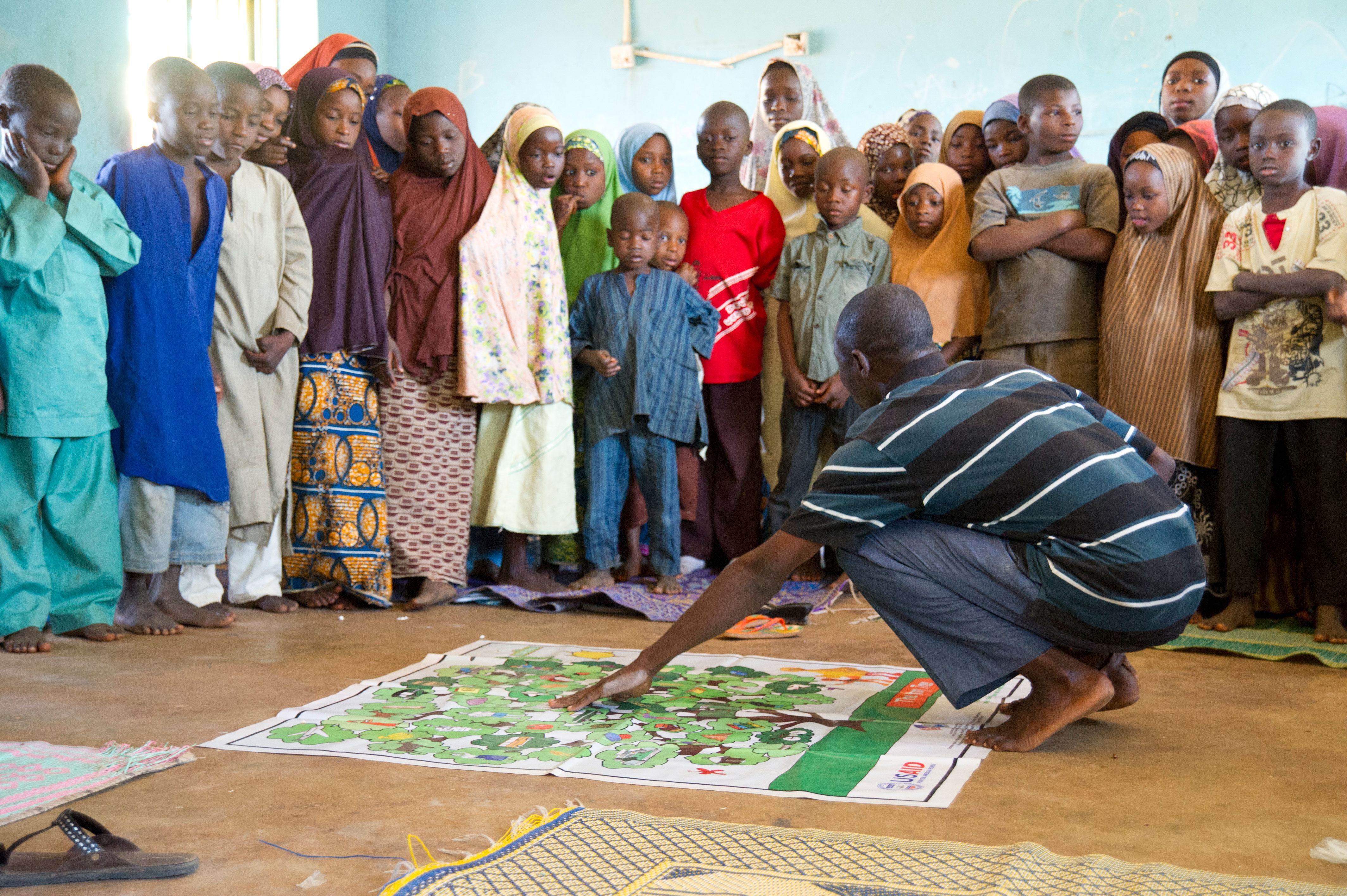Bauchi, Nigeria—His open face decorated by the wisp of a salt and pepper beard, Aliyu Shehu looks every bit the teacher he once was. And though he says he was drawn to education from a young age, Shehu, now the Registrar at the College of Education here, can remember a time when such was not the case for many of Nigeria’s teachers.
“Due to a dearth of teachers the quality of teaching went down drastically,” Shehu says of when he started teaching in the 1970’s. “And the federal government also came in with a program for mass production of teachers, which eventually did not produce quite the quality of teachers.”
Recognizing the problems that existed, the U.S. Agency for International Development launched the Northern Education Initiative in 2009.
Designed both to improve the education system in the two northern states of Bauchi and Sokoto and increase access to basic education for vulnerable Nigerian youth, the program was implemented by a consortium of non-governmental organizations headed by Creative Associates International.
Burdened by years of unrest that have weakened their education systems, the states of Bauchi and Sokoto were obvious targets for the program from the outset. While across Nigeria 33 percent of children have never attended school, 52 percent of children in Bauchi and 66 percent in Sokoto fell into that category, leading to extremely high rates of illiteracy.
Poorly qualified and stretched thin, teachers in both states were often facing class sizes of up to 100 students, an impossible burden for any educator, but particularly insurmountable for those with limited teaching skills.
To overcome those shortfalls, the Northern Education Initiative concentrated first on providing teachers with proper teaching methodologies, and second on improving how and what they taught in the classroom.
“During our internship with NEI, our primary education students have been trained [to use] the learning centered approach to teaching, grooming our teachers in activity-centered methodologies in all subject areas,” Shehu says. “In the USAID curriculum, whatever subject you are teaching there is a methodology. So now any subject [taught] in the basic education level has its methodology taught in the College of Education.”
Through the program, 5,685 teachers were trained in new teaching methodologies, the foundation of which was a core of literacy, numeracy, life skills and psychosocial counseling.
Working with the Ministries
Ayo Oladini, who directed Creative’s Northern Education Initiative, says the program not only collaborated with Education Ministries, but also worked to improve their systems for hiring and monitoring teacher performance.
“We developed the teacher recruitment and deployment policy,” Oladini says. “This is a policy that will help the state in recruiting qualified teachers, screening them, deploying them as appropriate and even moving teachers around from highly concentrated schools where you have more teachers than necessary, surplus teachers, to schools that don’t have enough.”
Bauchi State Education Commissioner Ibrahim Mohammed Aminu says that in compliance with the new policy, authorities began to research the certificates of teachers, inquire about their skills and determine whether they should be hired.
“This was basically as a result of our collaboration and cooperation and interaction with the NEI, where we were able to arrive at this kind of recruitment policy, or recruitment guidelines,” the Education Commission says. “Because we need to take the right person, put him in the right place to do the right job. If we take it that teaching is an outcome job, then definitely, the outcome would be defective.”
As a lifelong educator, Sheshu says he has seen the impact of the project, and knows it is making a difference.
In total, the Northern Education Initiative reached more than 1,422,000 students in both states, resulting in a 33 percent increase in school enrollment. Additionally, 736 vulnerable children were mainstreamed into formal education, another key goal of the project.
A believer in the power of both USAID and the role of education in Nigeria, Shehu says he was not surprised by the dramatic results of the project.
“I never doubted the ability to NEI USAID to make an impact,” Shehu said. “So when I came to learn that NEI has come to Bauchi State I said, ‘Bauchi, you must be blessed. Bauchi must be happy.’”
Michael J. Zamba reported and contributed to writing this article

